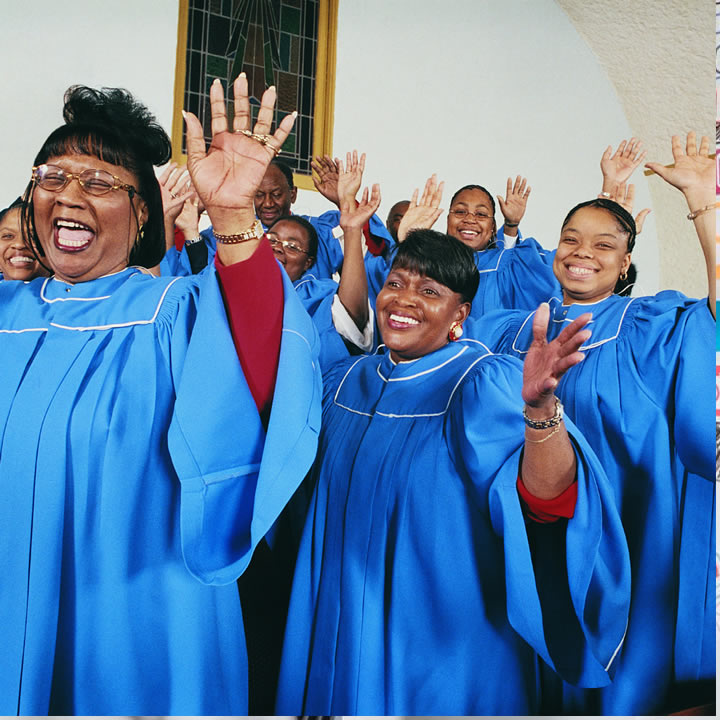With heavy roots in the African-American Church and religious tradition, gospel music has been passed down from generation to generation in every African-American family since the early 17th century.
The hymns featuring repetition of the words of worship allowed those without formal education ( those who could not read) participation in these important traditional rituals. During this time, gospel music was performed in the form of hymns and sacred songs with a major call-and-response style that later set the foundations for future spiritual gospel songs.
Family Traditions and Values of Gospel
Gospel traditions are nowhere more potent than within a gospel family, which is strange as gospel shows “traditions” in a negative light. As a genre created and embraced by enslaved people looking for freedom, the gospel was a way to guard the freedom they craved for.
Today, the gospel is a way to protect the freedom gained by removing the old “Christian traditions.” However, by celebrating freedom as long as it’s enjoyed with faith in the completed work of Christ, the gospel has unintentionally created another tradition – Gospel Family Tradition.
The fact is that many of the best gospel singers and artists have started their gospel journey with the help of or alongside their family members. All-sibling gospel bands like Winans Family – brothers Ronald, Marvin, Carvin, and Michael Winans and Benjamin and Priscilla, also known as CeCe, one of the greatest gospel singers of all times-are an excellent example of how the gospel is cherished and cultivated within a family.
Not only is the gospel a genre cherished within the family, but it also becomes a focal point of the family’s journey and life. Cynthia Angelica, a singer from Maryland with deep roots in the Black church, explains how gospel music, along with her family, affected her life.
”Music has always been the grounding point for my family. My brother is a musical prodigy, and he taught me the basics of guitar, bass guitar, and drums to support the family band. I’d say he planted the seeds for me feeling as though I had a real voice and something to offer as a musician.
My family band, led by my Dad and Andrew, performed covers of gospel artists like Richard Smallwood, Kirk Franklin, Marvin Sapp, CeCe Winans, Men of Standard, and Damita Haddon.”
Cynthia is set to release her debut album “Fears and Dreams,” a unique mixture of gospel and inspirational genres. Her new album encourages the listeners to break the chains of fear and self-doubt and show just how life-changing this freedom can be.
Gospel within a Group
Every good gospel singer began their career within a group. And indeed, gospel groups had a great deal in common with a gospel family. Often, the dynamic between family members within the gospel music group was the same as that between members of any other group.
Furthermore, because the gospel genre carried a highly spiritual message, finding good band members and fitting in within a group was rare. So those groups that find “it” tend to stick together for a long time.
Greatest Gospel Groups in History
Five Blind Boys of Alabama – Five Grammy Awards and a Lifetime Achievement Grammy, as well as being inducted into the Gospel Music Hall of Fame, was just a part of what this gospel group deserved.
A group of blind African-American singers began singing during the times of biggest segregation, only to perform at the White House for as many as three different presidents. They first started singing together in the late 1930s.
Fisk Jubilee Singers – Jubilee Singers were crucial to preserving Negro spirituals, an American musical tradition, in 1871. They introduced slave songs, broke every racial barrier, and entertained kings and queens in Europe late 19th century.
In 2008 they received the National Medal of Arts presented by President George W. Bush during the ceremony at the White House.
Soul Stirrers – The group was a launching platform for Sam Cooke, who became a legendary soul singer. Soul Stirrers were actually creators of rhythm and blues, taking the gospel out of the churches and introducing it to a national audience.
Their music, different from traditional gospel music and a much more rhythmic style, set the foundations for doo-wop and R&B.

